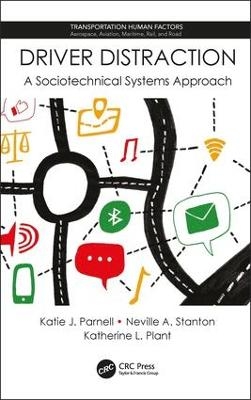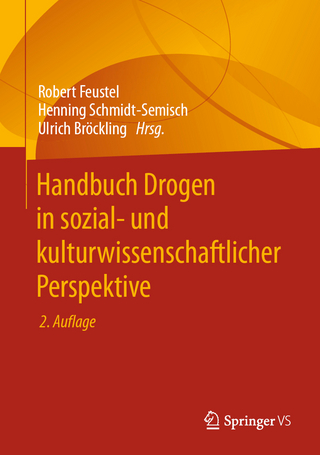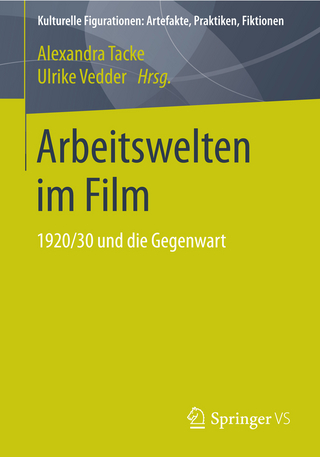
Driver Distraction
CRC Press (Verlag)
978-1-138-60681-4 (ISBN)
Driver Distraction: A Sociotechnical Systems Approach promotes a sociotechnical systems approach to driver distraction. This perspective focuses on analysis of the whole system, its values, and the interactions between human and technical elements at all organisational levels. The book covers the role that the sociotechnical system plays in the theory, study and mitigation of driver distraction. The book will be of interest to accident and incident investigation researchers and practitioners.
Provides a review of the current state of driver distraction research
Describes the development, application, and validation of a novel model of driver distraction that accounts for the sociotechnical system
Discusses a new, systems-based, driver distraction definition
Explains AcciMap analysis of the current legislation on driver distraction from technological devices
Offers novel approaches to understanding why driver distraction occurs
Presents a extensive framework of the causal factors that lead to distraction informed by drivers
Dr. Katie J. Parnell studied for her Engineering Doctorate at the University of Southampton and holds a First class BsC Psychology degree from the University of Reading. Her research interests include applying, developing and reviewing accident causation from a sociotechnical systems viewpoint. Katie is also interested in the advancements in technological interfaces and how they can be utilised safely. She has published a number of journal articles on applying the sociotechnical systems approach to the study, and mitigation of, driver distraction. Professor Neville A. Stanton, PhD, is a Chartered Psychologist, Chartered Engineer and a Chartered Ergonomist, and holds the Chair in Human Factors in the Faculty of Engineering and the Environment at the University of Southampton. He has degrees in Psychology, Applied Psychology and Human Factors and has worked at the Universities of Aston, Brunel, Cornell and MIT. His research interests include modelling, predicting and analysing human performance in transport systems as well as designing the interfaces between humans and technology. Professor Stanton has worked on cockpit design in automobiles and aircraft over the past 25 years, working on a variety of automation projects. He has published 40 books and over 300 journal papers on Ergonomics and Human Factors, and is currently an editor of the peer-reviewed journal Ergonomics. In 1998 he was awarded the Institution of Electrical Engineers Divisional Premium Award for a co-authored paper on Engineering Psychology and System Safety. The Institution of Ergonomics and Human Factors awarded him The Otto Edholm Medal in 2001, The President¹s Medal in 2008 and The Sir Frederic Bartlett Medal in 2012 for his contribution to basic and applied ergonomics research. The Royal Aeronautical Society awarded him and his colleagues the Hodgson Prize and Bronze Medal in 2006 for research on design-induced flight-deck error published in The Aeronautical Journal. The University of Southampton has awarded him a Doctor of Science (DSc) in 2014 for his sustained contribution to the development and validation of Human Factors methods. Dr Katherine L. Plant, BSc, PhD, is New Frontiers Fellow in Human Factors Engineering in the Transportation Research Group (TRG) within the Faculty of Engineering and the Environment at the University of Southampton, UK. She is the technical lead for aviation and road safety research within the group. In 2014 Katie was awarded the Honorable Company of Air Pilots Prize for Aviation Safety for her research exploring aeronautical critical decision making. Her primary research interests center on understanding how the interaction of the environment we work in and the mental schema that we hold influence our actions and decision-making processes. Katie is passionate about teaching Human Factors and runs the module ‘Human Factors in Engineering’, which is offered to undergraduate and MSc Engineering students across the faculty. In addition to this, Katie supervises a number of PhD, MSc and undergraduate student projects.
1. Introduction. 2. Where are we on Driver Distraction? 3. Exploring the Mechanisms of Distraction from In-Vehicle Technology: The Development of the PARRC Model. 4. What’s the Law got to do with it? Legislation Regarding In-Vehicle Technology use and its Impact on Driver Distraction. 5. Creating the Conditions for Driver Distraction: A Thematic framework of Sociotechnical Factors.6. What Technologies do People use when Driving and Why? 7. Good Intentions: Willingness to Engage with Technology on the Road and in a Driving Simulator. 8. Evolution of the PARRC Model: Development, Application and Validation. 9. Conclusion and Future Work.
| Erscheinungsdatum | 29.11.2018 |
|---|---|
| Reihe/Serie | Transportation Human Factors |
| Zusatzinfo | 33 Tables, black and white; 29 Illustrations, black and white |
| Verlagsort | London |
| Sprache | englisch |
| Maße | 156 x 234 mm |
| Gewicht | 521 g |
| Themenwelt | Sozialwissenschaften ► Soziologie |
| Technik ► Bauwesen | |
| Technik ► Fahrzeugbau / Schiffbau | |
| ISBN-10 | 1-138-60681-2 / 1138606812 |
| ISBN-13 | 978-1-138-60681-4 / 9781138606814 |
| Zustand | Neuware |
| Haben Sie eine Frage zum Produkt? |
aus dem Bereich


